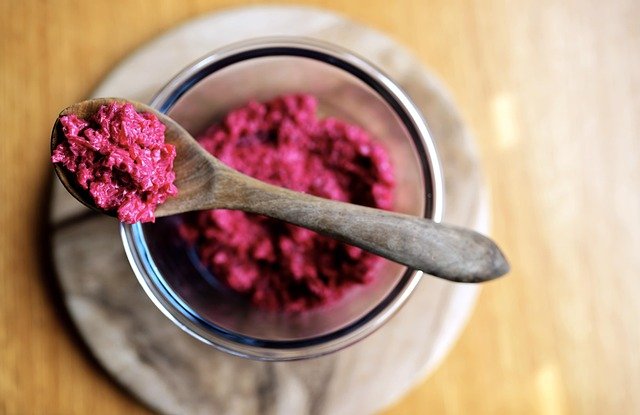Beets have long been a staple on salad plates and hummus platters, their vivid crimson hue adding both beauty and bite to any dish. But beyond their earthy flavor and visual appeal, these humble root vegetables are gaining traction in the supplement world—and for good reason. Research is stacking up in favor of beetroot supplements, especially in the form of powders or juices, for their role in supporting heart health, energy levels, blood sugar regulation, and more.
Here’s a closer look at what the science says about beet supplements—and why you might want to add them to your wellness routine.
1. A Natural Ally for Lower Blood Pressure
One of the standout compounds in beetroot is nitrate—a naturally occurring molecule that your body converts into nitric oxide. This molecule acts as a vasodilator, relaxing and widening blood vessels, which helps reduce blood pressure and improve circulation.
Studies show that beetroot supplements, rich in both nitrates and betalains (the pigments responsible for beets’ deep red color), can significantly lower blood pressure—even in people with hypertension related to type 2 diabetes. By improving blood flow, these compounds not only support cardiovascular health but may also enhance oxygen delivery to the brain and muscles, potentially improving focus and physical performance.
So, if you’re looking for a natural way to support healthy blood pressure, beet supplements may be worth considering—especially when paired with other heart-friendly lifestyle habits.
2. A Rich Source of Antioxidants
Beets are more than just nitrate powerhouses—they’re also rich in betalains, a group of antioxidant pigments that offer impressive anti-inflammatory properties. These compounds help protect your body against oxidative stress, a condition caused by an imbalance of free radicals and antioxidants in your system.
Free radicals—unstable molecules produced through normal metabolism or exposure to environmental toxins like cigarette smoke and UV light—can damage cells and DNA. Betalains step in to neutralize these harmful molecules, reducing the risk of chronic diseases and even some cancers.
Additionally, betalains have been found in lab settings to inhibit harmful microbes and reduce LDL (“bad”) cholesterol levels. While more human studies are needed to confirm these effects, the antioxidant profile of beetroot is undeniably promising.
3. Better Endurance and Recovery for Fitness Enthusiasts
If you’re an athlete—or just enjoy a good sweat session—beetroot supplements might give your workout a boost. Thanks to their high nitrate content, beets can improve the efficiency of mitochondria, the energy-producing units of your cells. This means your muscles can perform longer and recover faster.
Research has shown that athletes who consumed beetroot juice had increased endurance and improved oxygen utilization during high-intensity exercises like cycling, running, and swimming. Other studies have reported reduced muscle soreness and faster recovery following workouts, especially in the short term.
Whether you’re a weekend warrior or a seasoned competitor, a scoop of beetroot powder might help you push a little further and recover a little quicker.
4. Potential Blood Sugar Support
Emerging research is exploring beetroot’s potential role in blood sugar regulation, particularly for people with type 2 diabetes. Some studies suggest that eating beets or taking beetroot supplements may help lower fasting blood sugar levels.
One small trial involving people with type 2 diabetes found that daily consumption of raw beets improved both glucose metabolism and cognitive function. However, results have varied depending on how the beets are consumed. For instance, another study using beet juice didn’t show the same effect, highlighting the complexity of how different preparations impact health outcomes.
While more research is needed, beetroot may offer modest blood sugar benefits as part of a balanced diet. If you’re managing diabetes, it’s best to consult a healthcare provider before relying on supplements for glycemic control.
When Beet Supplements Aren’t for Everyone
Despite their many benefits, beet supplements aren’t a one-size-fits-all solution. People with certain conditions should approach them with caution.
If you’re prone to low blood pressure or are already taking medication to lower it, be aware that beet supplements could push your levels down too far. Similarly, individuals with gallstones may want to avoid beet products, as they can influence bile production and potentially worsen symptoms.

Also, because the FDA doesn’t regulate dietary supplements as strictly as prescription drugs, not all beet products on the market are created equal. Look for supplements that have undergone third-party testing to ensure they contain what the label claims.
Easy Ways to Add Beets to Your Routine
Not a fan of raw beets? No problem. Beetroot powder blends easily into smoothies, juices, oatmeal, or yogurt. You can also mix it into salad dressings or use it to add color to baked goods.
Whether you’re looking to support your cardiovascular health, improve exercise performance, or give your body an antioxidant boost, beetroot supplements offer a convenient and concentrated way to harness the benefits of this vibrant vegetable.
The Bottom Line
Beetroot supplements aren’t a magic bullet—but they are a powerful, research-backed tool for enhancing health. From better blood flow and stamina to antioxidant protection and potential blood sugar benefits, they pack a lot of promise into a small scoop.
As with any supplement, moderation and professional guidance are key. But if you’re looking to add a little more color—and vitality—to

